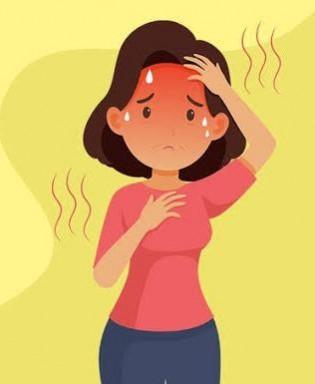
The recent study led by Dr. Stephanie Moreno from the University of Texas Southwestern Medical Center has shed light on the increased risk of cardiovascular disease (CVD) in women undergoing the menopause transition. This research challenges the long-held belief that CVD is primarily a man's disease. In reality, CVD accounts for 40% of all deaths in women, making it the leading cause of mortality for women.
The study found that although women typically develop CVD about a decade later than men, they are more at risk for developing heart disease following menopause. This is due to an increase in 'bad' low-density lipoprotein (LDL) particles and a decrease in 'good' high-density lipoprotein particles (HDL) that occur during and after the menopause transition.
Dr. Moreno explained, "Taken together, these changes suggest that menopause is associated with a transition to a higher-risk lipoprotein profile that could be more likely to cause cardiovascular disease, such as coronary artery disease." This finding is significant as it highlights the need for targeted interventions and lifestyle changes to manage the increased risk of CVD in post-menopausal women.

The research team analyzed changes in lipoprotein particles during the menopause transition in 1,246 participants. They measured common lipoproteins associated with CVD, including atherogenic LDL-P and small dense LDL. The results showed that all three female groups had an increase in LDL-P, with the greatest percent change between the peri and post groups.
Interestingly, compared to men, whose percent change was 213 per cent, small-dense LDL had a higher percent change in the peri-group. This percent change is approximately 15 per cent higher compared to both pre- and post-menopausal populations. Dr. Moreno further stated, "We found that menopause is associated with adverse changes in lipoprotein profiles, with the most pronounced changes found to be in increases in 'bad' LDL-particles and subfractions observed for peri-menopausal women."
These findings may help explain the rise of heart disease in post-menopausal women and help determine if earlier interventions are warranted. The research team has called for more studies to further understand these changes and their implications on women's health. This study will be presented at the forthcoming meeting of the European Society of Cardiology (ESC) Congress 2024 from August 30 to September 2 in the UK. This presentation will provide an opportunity for further discussion and exploration of the link between menopause and cardiovascular health among the global medical community.

















